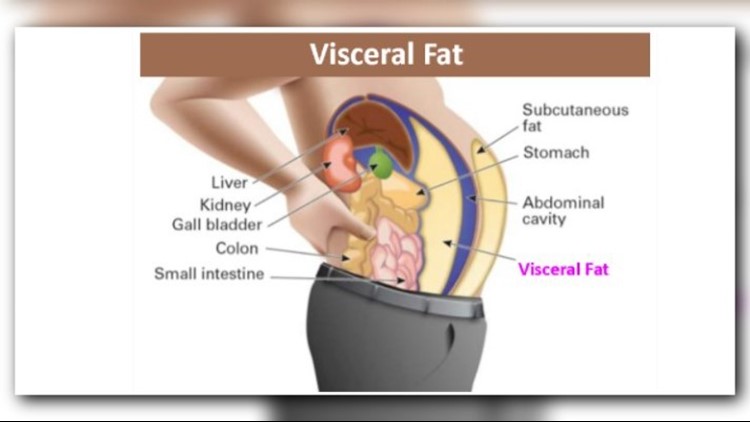It's a promising cancer break through that might be able to stop cancer in its tracks and it was discovered by Michigan State University researchers.
It has to do with visceral fat.
 We have two layers of fat. The outer layer or subcutaneous fat which is the easiest to lose and doesn't pose as much of a health risk.
We have two layers of fat. The outer layer or subcutaneous fat which is the easiest to lose and doesn't pose as much of a health risk.
The second layer is visceral fat. That’s the fat that’s tucked deep inside, next to the organs. This fat has been shown to play a very dangerous role in affecting hormones and their function. Those hormones are what trigger the grow of cancers like breast, lung and colon because those cancers are strongly influenced by our hormones.
The MSU study is now zoning in on this. Researchers are testing a promising drug called I-BET-762 that is showing signs of delaying the development of existing breast and lung cancer cells by targeting a how a cancerous gene in the visceral fat works.
The drug does not allow the gene to express itself, therefore significantly reducing the number of cancer cells produced.
In human tests, the drug prevented more than 50-percent of the cells from becoming cancerous.
A significant breakthrough in cancer research especially since almost half a million of all new cancers are linked to obesity and this visceral fat.
Comments